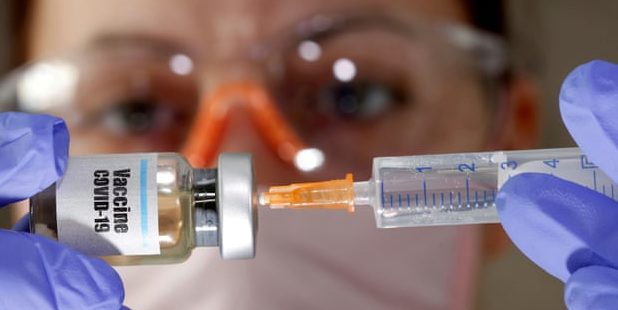It’s all been good news on the vaccine front lately: Pfizer and Moderna have released results suggesting that their products are in the region of 95% effective.
One concern I’ve seen, though, is that the Oxford/AstraZeneca vaccine results haven’t been released yet, and it’s Oxford’s that will be doing the heavy lifting in the UK. We’ve got 40 million Pfizer doses ordered, but 100 million of the AstraZeneca. Will it be as effective as those, or will we have backed the wrong horse? Results released this morning show “promising” immune responses, but so far there is no data on the actual efficacy: whether people are less likely to get Covid-19 if they’ve had the vaccine than if they haven’t.
I think, though, that the success of the Pfizer and Moderna vaccines is extremely good news on that front, and should make us more confident in the effectiveness of the Oxford vaccine.
Here’s why. Pfizer and Moderna’s vaccines are both mRNA vaccines. They get a short segment of RNA into your cells: that RNA then instructs the cell machinery to make a protein, the glycoprotein “spike” on the outside of the coronavirus. It’s that spike which acts as the “antigen”, the thing your immune system latches on to and remembers, (hopefully) giving you immunity when the virus turns up for real. You can read more about the different kinds of vaccine here.
Oxford’s vaccine is not an mRNA vaccine: it’s a viral vector vaccine. It uses an adenovirus which causes colds in chimpanzees to get into your cells. But once it’s there, it does the exact same thing: it instructs your cell machinery to make the same glycoprotein.
Since we already know that the glycoprotein is effective at creating an immune response — that’s why the Pfizer and Moderna vaccines have worked — then, as long as the Oxford vaccine is effective at getting your cells to make the glycoprotein, it’s a fair bet that it will be effective at getting the immune response.
I’ve checked this hypothesis with Rupert Beale, head of the Cell Biology of Infection lab at the Crick Institute, and with Robin Shattock, who is leading Imperial College London’s effort to produce a Covid vaccine (which by the way is another mRNA vaccine). They both agree that it’s good news for all the vaccine candidates which are using the spike protein as the antigen, whether directly (such as the Novavax product) or by having the body make it (mRNA or viral vector vaccines).
Shattock does raise an interesting question: what decisions should we make if, for instance, a vaccine becomes available that is less effective, but cheaper and more easily stored? “How would you trade off a 70% effective vaccine that can be stored for two years in the fridge and costs $3,” he asks, “against a vaccine that is 90% effective, but has the added cost and difficulty of a –80°C cold chain and costs higher than $20 a dose?”
How do we decide where to spend the money? It’s probably not entirely relevant for Britain since we’ve made our decision, but for intergovernmental bodies buying for the world at large – such as the ACT Accelerator — it could well be a live decision.
Still though: this is good news, not just for countries that will get access to the Pfizer and Moderna vaccines, but for all the vaccine candidates that will use the glycoprotein spike as an antigen, which is pretty much all of them. And the ones that don’t are traditional vaccines, which are harder to make but reliable, so we should be confident they work too. It’s looking good all round.











Join the discussion
Join like minded readers that support our journalism by becoming a paid subscriber
To join the discussion in the comments, become a paid subscriber.
Join like minded readers that support our journalism, read unlimited articles and enjoy other subscriber-only benefits.
Subscribe